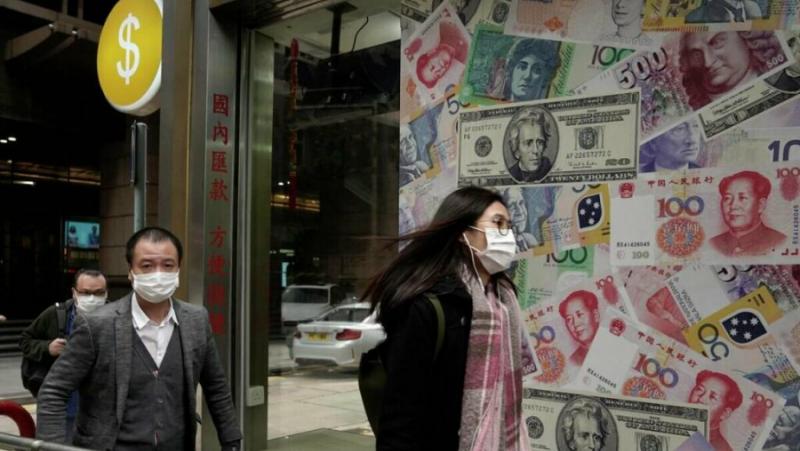/Pogled.info/ China’s investment in US government debt fell below a trillion dollars for the first time in 12 years. Large-scale anti-Russian sanctions have undermined confidence in the main reserve currency. Inflation, which has been at a record level for 40 years, does not add optimism. At the same time, it is not just Beijing that has sharply lost interest in US Treasuries – other central banks are also getting rid of them.
Less than a trillion
According to the U.S. Treasury Department, in May, China’s portfolio of investments in U.S. government debt stood at $980.8 billion, down 23 from the previous month and nearly 100 from last year. That is, the psychological limit of one trillion is already behind us.
For several years, Beijing has been reducing investments in US government securities. The trigger was the trade war unleashed by Washington, and later the technology war. From a peak of 1.32 trillion in November 2014, investment has fallen by more than 200 billion. And as of June 2019, the leadership among foreign holders of US government debt has passed to Japan.
Curiously, for Tokyo, this figure is also at a two-year low – 1.212 trillion.
Undermined trust
Freezing Russia’s international reserves of around $300 billion has had an effect.
A potential asset grab has the world’s second-largest economy on edge. The Chinese fear that in the event of a regional military conflict or other crisis, the Americans will do the same to them. At an emergency meeting in May, financial officials discussed how to protect more than $3 trillion in savings.
The recommendations boiled down to the need to diversify dollar-denominated assets, accelerate international recognition of the Chinese currency, increase the use of the digital yuan in cross-border payments, and generally destroy US financial hegemony in any way possible.
Over the past 20 years, the share of American currency in Beijing’s national reserves has already fallen by a quarter to 56 percent, while gold has tripled to almost 2,000 tons.
Economists believe that Washington will not touch China’s reserves. This would cause enormous damage to international production and trade chains: China has huge dollar assets and close economic ties with the United States. But Beijing will continue to withdraw funds from US Treasuries.
The trillion held by China in US government bonds is gradually “dissolving”. The Chinese are actively diversifying their investment portfolio. In particular, they are building up a foreign exchange reserve in yuan to compete with the dollar and support other economies facing instability.
Unbridled inflation
The tightening of monetary policy by the Federal Reserve, along with rampant inflation, is also hurting the US debt market. When interest rates rise, bond yields fall and investors who sell them to maturity lose money. It makes no sense to buy securities yielding three percent with dollar inflation accelerating to nine.
In May, the Federal Reserve raised its benchmark interest rates by 50 basis points and in June by another 75 basis points in an attempt to limit record price increases. Wall Street expects a similar decision from the upcoming meeting at the end of the month.
US inflation hit a 40-year high in June. The main reason is the increase in the price of food and consumer goods. US President Biden called it a “curse”. And he said: it is better not to count on the fact that food and fuel will become cheaper in the near future. And Russia is to blame for everything.
The real reason was stated in Bloomberg. “Everything became more expensive due to the record high prices of raw materials, which skyrocketed after the ill-conceived sanctions against Moscow,” the agency states.
General trend
Beijing is not the only one to abandon the dollar. The world’s 30 largest central banks from April to June were all actively diversifying their assets. In addition to China and Japan, investments in American government securities are reduced by Saudi Arabia and Brazil. Experts note: Foreign investment in US government debt has fallen as fast in the past six months as it has since the election of Donald Trump in 2016 and since the start of the pandemic.
“We are seeing a gradual erosion of the dollar. The picture of a multipolar monetary system is emerging,” says expert Massimiliano Castelli. Holders of US government securities are looking for alternatives: stocks, green bonds and inflation-protected securities.
The dollar accounted for just under 60 percent of global reserves at the end of the first quarter, compared with 65 percent in the same period in 2016, according to the IMF. The dollar is still the main reserve currency. But the U.S. response to geopolitical unrest may ultimately strip it of its dominance.
There is another problem: if foreign interest in securities continues to weaken, interest rates on them will rise even more. And it will become very difficult to service the enormously inflated national debt. As well as find a solution for the huge budget deficit, which is mainly covered by the sale of securities.
Translation: V. Sergeev
IMPORTANT!!! Dear readers of Pogled.info, they limit us because of our positions! Log in directly to the site www.pogled.info . Share on your profiles, with friends, in groups and on pages. In this way, we will overcome the limitations, and people will be able to reach the alternative point of view on the events!?
Subscribe to our YouTube channel/top right/: https://www.youtube.com
Become a friend of Look.info on facebook and recommend to your friends
–


